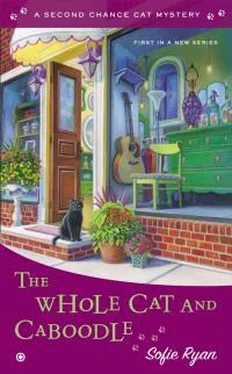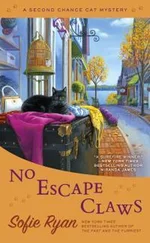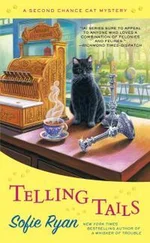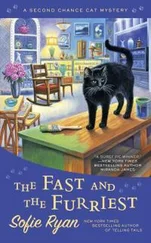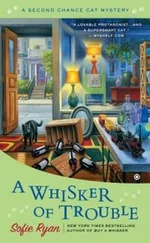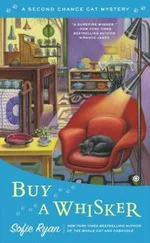“Yes,” I said.
“You mean you’d actually take an entire day off?”
“I would,” I said as we walked over to the bar to pay our bills.
She gave me a self-satisfied smile. “You taking the day off. My work on this planet is pretty much done.”
Jess and I walked up to Maple Street together. She rented a little cottage at the back of a much larger Federal-style house partway up the hill.
“If Charlotte or Rose needs some time off to be with Maddie, call me,” she said. “I can come and help out.”
“Thanks, Jess,” I said. “And I’ll let you know about Thursday.”
She nodded. “Tell Mac I’ll be up to get those boxes. Maybe after lunch tomorrow.”
I hugged her and turned right while she went left.
• • •
Arthur Fenety’s death was front-page news in the morning paper. They’d managed to dig up a lot of information about the man in less than twenty-four hours. A lot.
My eyes got wider and wider as I read the article. As Liz would have put it, Fenety had been a very, very bad boy during his time in New England. It turns out that Maddie hadn’t been the only woman he’d been involved with. He also had a girlfriend in Portland, and four different wives—at least that they’d found so far. And it appeared he’d done more than break hearts: apparently he’d taken money and jewelry from several of the women.
Arthur Fenety was an old-fashioned con artist who used his charm, his manners and his distinguished demeanor to take advantage of women.
“Poor Maddie,” I said to Elvis. He’d jumped onto my lap after he’d finished his breakfast. My breakfast had been coffee because I still didn’t have any more food in the fridge than I’d had the night before.
The cat craned his neck forward as though he were studying the wedding photos of Fenety with his four wives.
I looked at the pictures myself. I could see why all the women had been scammed. It didn’t mean they were stupid or gullible, just lonely. Arthur Fenety had been well-spoken, I remembered. Even though I’d thought he was a little too smooth, I hadn’t suspected what he was really up to. In each of the photos he was well dressed, his white hair freshly barbered, mustache clipped. He looked exactly like what he’d said he was: an educated, affluent, former financial advisor.
I thought about the time we’d discovered that a customer’s valuable heirloom oil painting was nothing more than a paint-by-number forest scene in a very expensive frame.
“You can put a pink tutu on a bear,” Rose had said, “but that doesn’t make him a ballerina.”
Arthur Fenety had dressed in expensive suits but that didn’t mean he was a gentleman.
Something about the image of Fenety with his second wife caught my eye. I leaned over for a closer look and so did Elvis.
“Wait a minute. I’ve seen her,” I said to the cat, tapping the paper with one finger.
He looked at the photograph and then looked at me, tipping his head to one side.
“Yes, I’m sure,” I said, feeling a little silly that I was having a conversation with a cat. At least I wasn’t talking to myself.
I grabbed my phone and called Jess.
“Do you have the paper?” I asked.
“Ummmm, let me see. Yes,” she said. I was guessing she was in her sewing space and had to look around to find where she’d set it down.
“Second page. Picture in the middle. Does that woman look familiar?”
“Hang on,” she said. I heard the newspaper rattle and Jess take a long drink from something, probably a cup of black coffee so strong you could strip paint with it.
“Oh yeah,” she said after a moment. “That was the woman in the booth behind us last night.”
“Are you positive?” I asked. Elvis kept craning his neck in the direction of the phone, as though he were trying to hear Jess’s half of the conversation.
“Of course I’m positive,” she said. I heard her take another sip of her coffee. “Same chin, same nose, same eyes, and she even had on the same earrings that she’s wearing in the photograph.” There was silence for a moment. “Wait a second,” she said. “How many wives did this guy have?”
“I have a feeling the final count isn’t in yet,” I said. “Thanks, Jess. I’ll talk to you later.”
I set the phone on the counter and looked at Elvis, who seemed to be looking at the pictures again.
“I’m betting Arthur Fenety had more than four wives,” I said. Elvis bobbed his head up and down, almost as though he were nodding. I picked him up and set him on the floor.
“The bigger question is, did one of them kill him?”
Chapter 7
I wasn’t sure if it was important or not, but I called and left a message for Michelle at the police station, telling her that Jess and I had seen one of Arthur Fenety’s former wives at The Black Bear last night.
I realized I’d forgotten to ask Sam about the Rickenbacker guitar I’d let Nick play, so Elvis and I headed down to The Black Bear instead of up to the shop. I knew Sam would probably be in the kitchen. His apartment was over the pub and he did almost all his cooking in the pub kitchen.
I pounded on the heavy metal back door, and after a minute I heard the dead bolt turn and Sam opened the door.
“Hi, kiddo,” he said, a smile spreading across his face. “I thought you were the laundry. What are you doing here?”
“We got a new guitar in on consignment and I thought it might be something you’d be interested in. I completely forgot to tell you about it last night.”
Sam smiled. “Yeah, I heard about what happened.” He studied my face. “Are you okay?”
I nodded. “I’m good.”
“Do you have time for breakfast?” he asked.
“Meow!” Elvis said loudly. I was carrying him in an old gym bag slung over my shoulder and his head was poking out of the top. As long as he could see what was going on he was happy to stay in the bag and get carried around.
“Yes, we know you have time for breakfast,” I said.
Sam gave me an inquiring look. “Blueberry pancakes,” he said.
My stomach gurgled. “Well, I wouldn’t want Elvis to have to eat alone,” I said with a smile.
“C’mon,” he said.
I followed Sam through the kitchen into the pub itself and slid into the same booth where I’d first encountered Elvis. He wiggled his way out of the bag as soon as I set it on the floor and hopped up onto the seat beside me. He sat down and looked expectantly at Sam.
“Do you have pictures of the guitar?” Sam asked.
I patted my pocket. “They’re on my phone.”
“Okay,” he said, wiping his hands on his long white apron. “Give me a minute and I’ll make your pancakes; then I can take a look.” He gestured toward the bar. “Help yourself to some coffee.”
I slipped past Elvis and got myself a mug of coffee; then I walked around the pub, looking at the photos that were everywhere in the room. After a moment Elvis jumped down and trailed behind me.
Sam had been making music pretty much his whole life and he’d known my dad—my biological dad—just about as long. In their early twenties—back before marriage, Mom and me—Sam and my father had been in a band called Back Roads. They’d even had a minor hit, “End of Days.” Even though I had Peter, and he was as much my dad as he was Liam’s, Sam still took on a kind of fatherly role in my life. When it came to music and musical instruments I trusted him more than I did anyone else.
One of my favorite photos of Sam and my dad hung behind the bar. I bent and picked up Elvis and walked over to look at it. They were squinting into the sunshine, grinning, with their arms around each other’s shoulders.
Sam came out of the kitchen, carrying a large, round tray. I walked back to the booth, set Elvis on the seat and slid in beside him. Sam had brought me two blueberry pancakes and a bowl of chopped apples, oranges and grapefruit. For Elvis there was a little dish of shredded chicken. I set the dish next to me on the vinyl seat. Elvis leaned around me to look at Sam, almost as though he were saying thank you, and then he eyed my plate.
Читать дальше
